July 24th is International Self-Care Day! This day serves as a reminder to prioritize self-care practices amidst our busy lives, recognizing that taking time for oneself is beneficial and essential. By dedicating a day to self-care, we underscore its significance in enhancing our physical and mental health, ultimately leading to a more balanced and fulfilling life.
Self-care encompasses many activities to maintain mental, emotional, and physical health. It’s more than pampering oneself; it involves deliberate actions and practices that reduce stress, prevent burnout, and promote overall wellness. Engaging in self-care is crucial because it helps us recharge, improves our mood, boosts productivity, and fosters resilience.
On International Self-Care Day, individuals are encouraged to indulge in activities that bring joy and relaxation. This could include taking a long bath, practicing mindfulness or meditation, engaging in a favorite hobby, or simply spending quality time with loved ones. Treating yourself with kindness and compassion is at the heart of self-care, making this day a perfect opportunity to start or reinforce these healthy habits.
The nervous system is fundamental to mental health because it regulates emotions, thoughts, and behaviors. Imbalances or disruptions in these neurotransmitters can lead to mental health conditions such as depression, anxiety, and schizophrenia. Keep reading our blog, which discusses the importance of a balanced nervous system, signs it needs a reset, and how to reset your nervous system with psychological, lifestyle, and behavioral changes.
Understanding the Nervous System
The nervous system is a complex network of nerves and cells that transmit signals between different body parts. It plays a crucial role in controlling and coordinating bodily functions. It consists of two main parts:
- The central nervous system (CNS), which includes the brain and spinal cord
- The peripheral nervous system (PNS), which comprises all the other neural elements
The brain, the central nervous system organ, processes sensory information, manages cognitive functions, and oversees emotional responses. Neurotransmitters, the chemical messengers in the brain, influence mood, anxiety, and overall mental health. Imbalances or disruptions in these neurotransmitters can lead to mental health conditions such as depression, anxiety, and schizophrenia. Additionally, the nervous system’s ability to adapt and rewire itself, known as neuroplasticity, is vital for learning, memory, and recovery from mental health disorders. Understanding the nervous system’s role in mental health emphasizes the importance of biological and psychological approaches to treatment and well-being.
Stress significantly impacts the nervous system, triggering a cascade of physiological responses designed to help the body cope with perceived threats. When faced with stress, the hypothalamus in the brain activates the sympathetic nervous system, releasing stress hormones like adrenaline and cortisol from the adrenal glands. These hormones prepare the body for a "fight or flight" response by increasing heart rate, blood pressure, and energy supplies.
However, chronic stress can lead to prolonged exposure to these stress hormones, which can have detrimental effects on the nervous system. Over time, high levels of cortisol can impair cognitive function, reduce neuroplasticity, and contribute to mental health issues such as anxiety, depression, and memory problems. Additionally, chronic stress can weaken the immune system, increase inflammation, and disrupt everyday neural communication, further exacerbating mental and physical health problems.
How do you know if your body is in a prolonged “fight or flight” response and that your nervous system needs a reboot? There are several signs to watch for.
Signs Your Nervous System Needs a Reset
Physical symptoms can be the first indicators that your nervous system is under strain. Common signs include:
- persistent fatigue
- frequent headaches
- muscle tension
- digestive issues such as stomach pain or irritable bowel syndrome
You might also experience changes in sleep patterns, either struggling with insomnia or feeling excessively sleepy. Additionally, an increased susceptibility to colds or other infections can indicate that chronic stress is compromising your immune system, a function closely linked to the nervous system.
Emotional and cognitive symptoms are equally important to notice. Emotionally, you may find yourself feeling more irritable, anxious, or depressed than usual. Mood swings, a sense of overwhelm, and difficulty managing stress are also red flags. Cognitively, you might experience problems with concentration, memory, and decision-making. A constant feeling of mental fog or forgetfulness can indicate your brain is overtaxed.
If you find it hard to focus on tasks, struggle to remember things, or notice a decline in your problem-solving abilities, these could be signs that your nervous system needs a reboot.
Addressing these symptoms through rest, relaxation, and self-care is vital to restoring balance and promoting long-term health.
How to Reset Your Nervous System: Psychological Techniques
Resetting the nervous system involves a holistic approach incorporating psychological techniques, lifestyle changes, and cognitive-behavioral strategies.
One effective psychological technique is mindfulness meditation, which helps reduce stress by encouraging a present-moment focus and deep breathing. Regular practice of mindfulness can lower cortisol levels, improve emotional regulation, and enhance overall mental clarity.

Another beneficial psychological technique is engaging in therapeutic activities such as journaling, listening to calming music, or talking to a counselor, which can help process and manage emotional stressors.
How to Reset Your Nervous System: Lifestyle Changes
Lifestyle changes play a crucial role in resetting the nervous system.
- Adequate sleep is essential for repairing and rejuvenating the body and brain. Reducing screen time, especially before bed, can prevent overstimulation and improve sleep quality.
- Regular physical activity, such as cardio and strength training or aerobic exercises, can reduce stress hormones and boost endorphins, promoting well-being.
- Maintaining a balanced diet rich in nutrients also supports brain health and overall nervous system function. Staying well-hydrated is also important to support overall bodily functions, including the nervous system.
- Reducing caffeine and alcohol intake can also help stabilize mood and improve sleep quality.
How to Reset Your Nervous System: Cognitive-Behavioral Strategies
Cognitive-behavioral changes are vital for resetting the nervous system.
Practicing relaxation techniques, such as progressive muscle relaxation or deep breathing exercises, can activate the parasympathetic nervous system, which promotes a state of calm and counteracts the stress response.
Challenging and reframing negative thought patterns through cognitive-behavioral therapy (CBT) can reduce anxiety and improve mental resilience.
Developing a routine with regular breaks and leisure activities can prevent burnout and enhance cognitive function.
Other ways to reset your nervous system include spending time in nature to reduce stress and improve mood and spending time with supportive friends and family to enhance emotional well-being.
By integrating these strategies, individuals can effectively reset their nervous system, improving mental and physical health.
How to Reset Your Nervous System: Professional Help & Therapy
If you think your issues run deeper, resetting the nervous system through professional help and therapy is a profound act of self-care and courage. Seeking the guidance of a therapist or counselor can provide invaluable support in navigating the complexities of mental and emotional health.
Therapy offers a safe space to explore and understand the underlying causes of stress and anxiety, fostering a deeper awareness of one's thoughts and feelings. Through various therapeutic techniques, such as cognitive-behavioral therapy or mindfulness-based stress reduction, professionals can help individuals develop effective coping strategies, build resilience, and restore balance to their nervous system.
Embracing this journey with a trained professional alleviates immediate distress and empowers individuals with the tools and insights needed for long-term well-being. This step is a powerful acknowledgment of one's worth and a commitment to a healthier, more harmonious life.
Twin Branch Wellness & Recovery for Women
Twint Branch Wellness & Recovery for Women is truly a unique environment for adult women to break free of destructive patterns.
Twin Branch offers a tranquil and private setting in our ASAM Level 3.5 residential recovery treatment program. We are the only Residential Treatment Program in Virginia dedicated to women only at this level of care. We accommodate up to 19 adult women who have made the courageous decision to seek treatment for substance use disorder. We provide 24/7 medical and support care. Our rural 30-acre campus is surrounded by more than 150 acres of natural privacy, providing a safe harbor from distractions and boundless healing opportunities.

We believe that women in recovery face unique challenges. Substance use disorder and mental illness often feed off each other in an unrelenting cycle. We partner with you to uncover your history, triggers, and coping skills needed to manage both challenges for a brighter future.
What's your story? Are you ready to start a new chapter? Are you ready to live a healthier and more fulfilling life? If you or someone you love are struggling with substance abuse, Twin Branch Wellness & Recovery for Women is here to help you begin your recovery journey. It is never too late or too soon to choose wellness and develop the tools necessary to manage life's demands.





